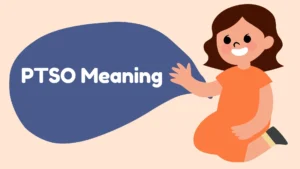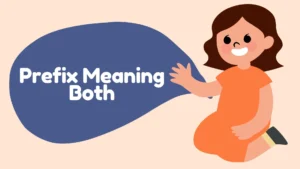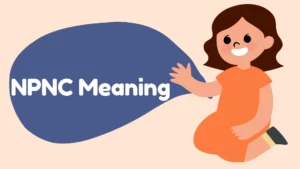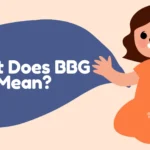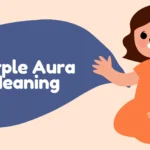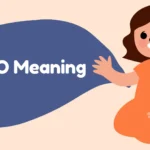If you’ve scrolled through texts, tweets, or TikToks lately, you might’ve run into “ion” and wondered, “Wait…what’s that supposed to mean?” You’re not alone. At first glance, it might look like a typo or some chemistry term that got lost outside the lab. But in text and social media lingo, “ion” has taken on a life of its own. This quirky little abbreviation is actually a whole phrase squished into three letters, and it’s more common than you might think.
Understanding slang like “ion” matters because it helps you keep up with digital conversations, decode tone, and avoid miscommunication—especially in fast-moving chats or platforms like Twitter, Instagram, or Snapchat. Whether you’re a parent trying to understand your teen or just someone curious about language trends, diving into what “ion” really means in text can give you some useful insight. Let’s break it down.
What Does “ion” Mean in Text?
In text, “ion” typically stands for “I don’t”—a phonetic spelling that mirrors how it sounds when people say it quickly in conversation. For example:
- “Ion like that movie.” = “I don’t like that movie.”
- “Ion even know her like that.” = “I don’t even know her like that.”
It’s informal, relaxed, and often used in casual digital conversations. Most of the time, it pops up in places like texting, Twitter replies, or TikTok captions—anywhere people are using shorthand to communicate quickly.
The appeal of “ion” lies in its simplicity. Just three letters to say something that would normally take six or seven. Plus, it reflects real-life speech patterns. People often slur “I don’t” when talking fast, and “ion” captures that exact sound.
Here’s another example:
Friend 1: “You going to the party?”
Friend 2: “Ion think so, I’m tired.”
In this case, “ion” helps convey a laid-back tone while still getting the point across.
Other Ways to Say “ion”
While “ion” is short for “I don’t,” there are plenty of other casual phrases that people use to mean the same thing. Some of them include:
- “I ain’t” – a southern-style contraction often used similarly.
- “Nah” – a super brief way to say no or disagree.
- “I dunno” – short for “I don’t know,” often spelled phonetically.
- “I can’t” – sometimes used instead of “I don’t” depending on the context.
- “I’m not about that” – more expressive, but still informal.
Each of these has its own nuance. “Ion” is more about capturing the casual vibe of texting or speech. In contrast, “I ain’t” might carry more regional or cultural weight, while “nah” is blunt and to the point.
So if you’re texting someone and want to sound casual or match their tone, using “ion” can keep the vibe light and friendly. But if clarity matters—like in professional or serious contexts—it’s better to skip the slang.
Definitions & Meaning
At its core, “ion” in texting is a phonetic contraction—a way to write words based on how they sound when spoken quickly. It stands for “I don’t,” and is used in everyday chat to reflect a relaxed, conversational tone.
It’s not a dictionary-defined word in this form (unless you’re talking chemistry), but it’s widely understood in online spaces. Think of it like an informal shorthand, much like:
- “brb” for “be right back”
- “idk” for “I don’t know”
- “gonna” for “going to”
“ion” is part of a growing trend where written language bends to mirror how we actually talk. It’s a shortcut, yes—but also a style choice that adds personality to texts and posts.
Origins & History
“ion” started showing up in digital spaces in the late 2010s, especially on platforms like Twitter, Tumblr, and later TikTok. It came from people writing how they speak, especially in African American Vernacular English (AAVE), where contractions and phonetic spellings are a key part of the linguistic rhythm.
The shift from “I don’t” to “ion” isn’t random—it reflects real spoken patterns. Say “I don’t” out loud fast a few times. Pretty soon, it sounds like “ion.” It’s the same reason we say “gimme” instead of “give me” or “lemme” instead of “let me.”
Social media played a huge role in spreading it. Influencers, meme creators, and casual posters started using “ion” in captions and comments. It caught on quickly because it felt natural, expressive, and easy to use.
Now, it’s not unusual to see whole posts using it:
“Ion care what anyone says, pineapple belongs on pizza.”
As with many slang terms, its roots in AAVE are important to acknowledge. Many of these expressions shape the way all of us communicate online today.
Example
Here are a few examples showing “ion” in action across different settings:
Text Message:
“Ion feel like going out tonight. Let’s just chill.”
Tweet:
“Ion know why y’all still watching that show—it fell off after season 3.”
TikTok Caption:
“POV: ion study but still pass the test 💀”
Instagram Comment:
“Ion like the new update tbh 😒”
Each time, it’s casual, direct, and full of personality. You can almost hear the voice behind the words.
Usage in Different Contexts
1. Social Media:
This is where “ion” thrives. Twitter, TikTok, and Instagram captions are full of it. It’s trendy, expressive, and often used to make hot takes or quick reactions. On TikTok, you’ll even hear it spoken out loud in skits and POV videos.
2. Text Messaging:
In texts, “ion” helps convey tone. It’s softer than saying “I don’t” and feels more personal—like a spoken voice in written form.
3. Pop Culture:
Memes, reactions, and parody videos use “ion” to mimic casual speech. It adds a certain flair to jokes and commentary.
4. Professional Contexts:
Don’t use it. Seriously. Unless you’re quoting someone or explaining slang, “ion” has no place in emails, reports, or formal settings. It can make you look unprofessional or unclear.
5. Gaming & Online Communities:
In chatrooms or Discord servers, you’ll spot “ion” often. It keeps the mood relaxed and friendly while speeding up the convo.
Common Misunderstandings & Clarifications
1. It’s Not a Chemistry Term (Here):
Yes, “ion” is a scientific word too (charged atom or molecule), but in text slang, it’s unrelated.
2. Not a Misspelling of “I own”:
Some people new to slang might read “ion” as “I own,” especially in game chats. That’s a mix-up.
3. Not Always Clear to Everyone:
Slang is cultural and regional. Someone outside online circles or from a different background might not recognize “ion” right away.
4. Not Always Negative:
While it often leads into a criticism (like “ion like that”), it’s not inherently negative—it’s just a way to start a statement.
5. It’s Not Proper Grammar:
That’s fine for casual use, but it’s worth knowing when to switch back to standard English.
Alternatives & Synonyms
Looking for other casual ways to say “I don’t”? Try these:
| Phrase | Meaning/Use |
| “Nah” | Quick way to disagree |
| “I ain’t” | Southern/informal version of “I’m not” or “I don’t” |
| “Not really” | Softer or more polite form |
| “I can’t” | Depends on context—means inability |
| “I’m not into…” | More expressive or specific |
| “I dunno” | Often replaces “I don’t know” |
| “I wouldn’t” | Used in conditional expressions |
These phrases help you shift tone depending on who you’re talking to and the setting.
Frequently Asked Questions (FAQ)
Q1: Is “ion” a real word?
Yes and no. It’s a real word in science, but in texting, it’s slang—short for “I don’t.”
Q2: How do you pronounce “ion” in text slang?
Just like “I don’t” said quickly—more like eye-own.
Q3: Is it okay to use “ion” in writing?
Sure, in informal writing like texts or social posts. Avoid it in formal or professional settings.
Q4: Where did “ion” slang come from?
It originated from speech patterns, particularly in AAVE, and became popular through social media.
Q5: Can “ion” be misunderstood?
Definitely. People unfamiliar with the slang might confuse it with the scientific term or just not understand it.
Q6: What’s the difference between “ion” and “I ain’t”?
Both are informal, but “I ain’t” has a broader range of meanings and can be more regionally specific.
Q7: Does “ion” have a plural or past tense?
Nope—it’s just a shorthand for “I don’t,” so it doesn’t follow typical verb rules.
Conclusion
“ion” might be tiny, but it packs a lot of meaning into just three letters. It’s a perfect example of how language evolves, especially online, where speed and expression matter. Whether you’re reading a meme or texting a friend, recognizing “ion” helps you better understand tone, emotion, and cultural context.
Like most slang, it’s not meant for every setting, but it’s fun, flexible, and very now. So the next time you see “ion,” you won’t be scratching your head. You’ll get the vibe, maybe even drop it into a text yourself. Just remember where and when to use it—and you’re golden.




